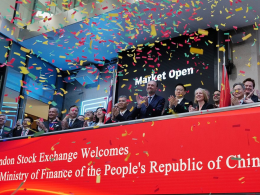One of the UK’s largest pension funds has withdrawn £28 billion from State Street in a high-profile move against the retreat from ESG investing by major US asset managers.
Following a review of its responsible investment policy, The People’s Pension has transferred a £20 billion developed market equity mandate to Amundi and £8 billion in fixed-income assets to Invesco. The multi-employer defined contribution scheme, among the largest in the UK, stated that both firms would oversee the funds with a clear emphasis on responsible investment.
Previously, State Street managed all of The People’s Pension’s assets, but the scheme has now reduced its holdings with the US asset manager to just £5 billion. The decision underscores growing tensions between long-term investors and US fund managers, many of whom have scaled back their ESG commitments, particularly following Donald Trump’s election. Some asset managers have also faced pressure from right-wing groups opposed to corporate efforts addressing climate change and diversity.
“By selecting Amundi and Invesco, we have chosen to prioritise sustainability, active stewardship and long-term value creation,” said Mark Condron, chair of trustees at The People’s Pension. The scheme, he added, seeks to “balance strong financial performance with responsible investment principles.”
Dan Mikulskis, chief investment officer of People’s Partnership, which operates The People’s Pension, highlighted a growing divide between US and European asset managers. “The big theme has been an increasing difference in positioning. That’s a huge story,” he said. He added that these distinctions had become “more and more apparent”, making it easier to determine which managers aligned with the fund’s objectives.
The scheme, which manages £33 billion and is forecast to reach £60 billion by the end of the decade, has been looking to diversify its asset manager partnerships as it continues to grow. It currently has nearly seven million members and aims to align all its investments with limiting global warming to below 1.5C above pre-industrial levels.
State Street’s ESG stance has come under scrutiny, with responsible investment campaign group ShareAction recently criticising it, alongside BlackRock, Fidelity Investments and Vanguard, for a “worrying retreat from ambition.” The four asset managers, which collectively oversee $23 trillion in assets, backed just 7 per cent of shareholder resolutions on ESG issues last year.
Amundi stated that its commitment to responsible investment was a key factor in securing the mandate, with the £20 billion equity index fund being climate-focused. Meanwhile, Invesco’s management of £8 billion in sovereign and corporate bonds will incorporate net-zero alignment, ESG analysis and active engagement with issuers.
State Street, however, signalled that it remains committed to the UK pensions market, saying it is focused on expanding its presence among defined contribution schemes and has a “strong pipeline” of business for the year ahead. “We look forward to continuing our work with The People’s Pension on the remaining mandates,” the company said.
The shift in mandates coincides with increased pressure from institutional investors on asset managers to engage more proactively with companies regarding climate risks. This month, a coalition of 26 financial institutions and pension funds urged managers to take a stronger stance on corporate climate accountability.
Meanwhile, some major US pension funds have raised concerns over the dilution of climate reporting standards. Marcie Frost, chief executive of the $536 billion California Public Employees’ Retirement System (Calpers), last week expressed unease after the Securities and Exchange Commission indicated it would no longer defend its climate disclosure rule in court.
Calpers and the California State Teachers’ Retirement System, which oversees £353 billion in assets, reiterated their commitment to holding companies accountable for their climate-related disclosures.















